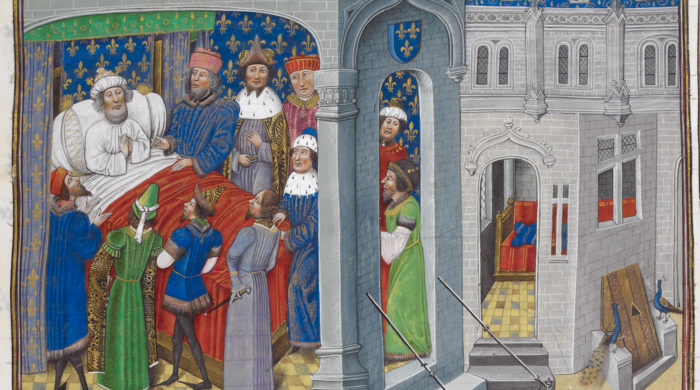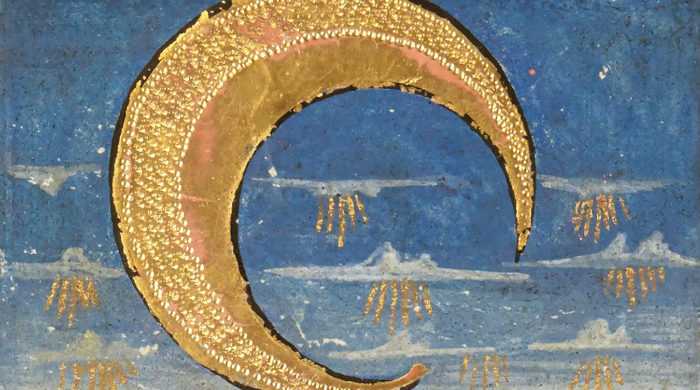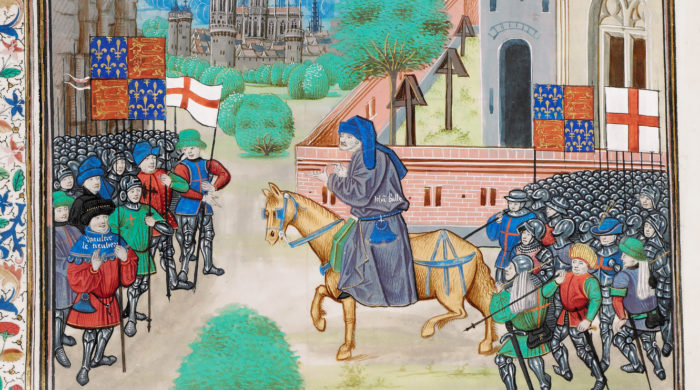GRAZING FLOCK
 On this day, in 1997, the scientists of the Roslin Institute in Scotland publicly announced the existence of the first mammal to have been successfully cloned from the cell of an adult animal: Dolly the sheep.
Born on July 5, 1996, Dolly had three mothers: one sheep provided the egg cell and a second donated the DNA, while a third carried the embryo as a surrogate mother. Later tests confirmed that, biologically, Dolly was only related to her DNA donor - being her exact clone. Dolly herself gave birth to six naturally-conceived lambs. In 2001, at the age of four, the sheep developed arthritis and soon showed sign of a severe lung disease that later led to her being euthanized; she died on February 14, 2003, at 6 years of age, while the life expectancy of her breed is usually around 12 years. Her disease, however, proved to be a form of lung cancer fairly common in sheep - especially in those kept indoors, such as Dolly. In 2016, four sheep cloned after Dolly's genes were alive and healthy at nine years old; screenings revealed no health defects in them, the scientists thus finding no evidence that cloning could affect long-term health.
The taxidermied remains of Dolly the sheep are now on display at the National Museum of Scotland in Edinburgh.
"Shepherd", illumination from "The Book of the Queen" by Christine de Pizan, ms. Harley 4431, f. 221r, c. 1410-c. 1414, British Library, London.
On this day, in 1997, the scientists of the Roslin Institute in Scotland publicly announced the existence of the first mammal to have been successfully cloned from the cell of an adult animal: Dolly the sheep.
Born on July 5, 1996, Dolly had three mothers: one sheep provided the egg cell and a second donated the DNA, while a third carried the embryo as a surrogate mother. Later tests confirmed that, biologically, Dolly was only related to her DNA donor - being her exact clone. Dolly herself gave birth to six naturally-conceived lambs. In 2001, at the age of four, the sheep developed arthritis and soon showed sign of a severe lung disease that later led to her being euthanized; she died on February 14, 2003, at 6 years of age, while the life expectancy of her breed is usually around 12 years. Her disease, however, proved to be a form of lung cancer fairly common in sheep - especially in those kept indoors, such as Dolly. In 2016, four sheep cloned after Dolly's genes were alive and healthy at nine years old; screenings revealed no health defects in them, the scientists thus finding no evidence that cloning could affect long-term health.
The taxidermied remains of Dolly the sheep are now on display at the National Museum of Scotland in Edinburgh.
"Shepherd", illumination from "The Book of the Queen" by Christine de Pizan, ms. Harley 4431, f. 221r, c. 1410-c. 1414, British Library, London.
Post consigliati
Charles V of France
September 16, 1380: on this day, King Charles V of France died after…
Moonlight
Un piccolo passo per un uomo, un grande balzo per l'umanità. Dopo aver…
John Ball
July 15, 1381: the English priest John Ball is hanged, drawn, and quartered because…


